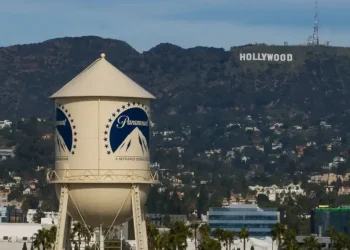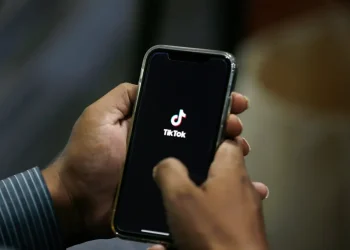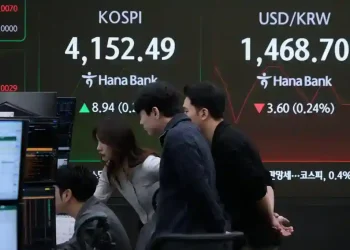Jury to Consider FTC Case Against Amazon Over Prime Enrollment and Cancellation
Published: September 23, 2025, 10:00 EDT
A federal trial in Seattle will determine whether Amazon misled customers into signing up for its Prime subscription service and made it unnecessarily difficult to cancel. The case, brought by the Federal Trade Commission (FTC), raises questions about online subscription practices and consumer protections under federal law. Amazon, however, denies any wrongdoing, stating that Prime enrollment and cancellation processes are clear and accessible.
Background of the Case
The FTC filed the lawsuit in 2023, citing over a decade of alleged violations of the Restore Online Shoppers’ Confidence Act (ROSCA), a 2010 law designed to protect consumers from deceptive online sales practices. Jury selection began Monday in the U.S. District Court for the Western District of Washington, with opening statements scheduled to follow.
Prime offers subscribers benefits such as expedited shipping, streaming video, and discounts at Whole Foods, for $139 annually or $14.99 per month. The service is a major revenue driver for Amazon, which reported over $12 billion in subscription revenue for its most recent quarter, marking a 12% increase year over year, according to the company’s July financial report.
Allegations by the FTC
The FTC claims that Amazon made it challenging for customers to make purchases without unintentionally enrolling in Prime. In some instances, the agency argues, customers were presented with buttons that did not clearly indicate they were subscribing to Prime.
“Amazon has long known that millions of its customers struggled with enrollment and cancellation of its subscription service, Prime,” the FTC said in court filings. The agency noted that some internal Amazon employees described the lack of clarity as an “unspoken cancer,” warning that simplifying the process could reduce the number of subscribers.
The complaint also highlights the difficulty of canceling Prime subscriptions, which internally was referred to as “Iliad,” a reference to the lengthy narrative of the Trojan War. Customers had to confirm cancellation across three separate pages, according to the FTC.
Amazon’s Defense
Amazon maintains that its Prime terms are clearly communicated before customers enroll. The company emphasizes that cancellations can be completed via phone, online, or chat. In a court filing, Amazon stated:
“Occasional customer frustrations and mistakes are inevitable — especially for a program as popular as Amazon Prime. Evidence that a small percentage of customers misunderstood Prime enrollment or cancellation does not prove that Amazon violated the law.”
The company also defended its executives, including Neil Lindsay, Jamil Ghani, and Russell Grandinetti, who are named in the lawsuit. Amazon asserts that these leaders acted properly and prioritized customer experience.
Legal Developments and Court Rulings
U.S. District Judge John Chun, appointed by President Joe Biden, ruled last week that ROSCA applies to Prime. He limited some defenses Amazon may present at trial and supported the FTC’s claim that collecting billing information before disclosing Prime’s terms could violate the law.
Several key issues, including whether Amazon’s disclosures are “clear and conspicuous” and whether the cancellation process is sufficiently “simple,” remain for the jury to decide. If the jury sides with the FTC, two executives, Lindsay and Ghani, could be held personally liable, and Grandinetti may also face potential liability.
In July, Judge Chun criticized Amazon for withholding 70,000 documents from the FTC, describing the company’s conduct as “tantamount to bad faith.”
Context of Regulatory Oversight
The FTC began investigating Amazon’s Prime practices in 2021 and filed the case under Chair Lina Khan, an antitrust expert. The lawsuit predates the FTC’s broader antitrust suit against Amazon, which accuses the company of monopolistic control over online retail markets.
Amazon has also navigated political relationships with both the Biden and Trump administrations. Notably, the company donated $1 million to former President Donald Trump’s inauguration fund and has collaborated on media projects related to Trump, including streaming The Apprentice on Prime Video and producing a documentary on First Lady Melania Trump.
Implications for Consumers and Industry
This trial could influence how subscription services are marketed and managed across the technology sector. Clearer disclosure of terms, simplified cancellation processes, and transparency in online commerce may emerge as focal points for regulators and companies alike.
The outcome may also impact Amazon’s internal policies and set precedents for how consumer protection laws are applied to large online platforms. Legal experts suggest that the jury’s findings could affect millions of current and future subscribers.
Outlook
As the trial proceeds, both Amazon and the FTC are preparing extensive evidence and witness testimony. The case highlights ongoing tensions between tech companies’ business models and federal consumer protection laws. Observers note that the verdict could have lasting effects on subscription services, online transparency, and executive accountability.
This article was rewritten by JournosNews.com based on verified reporting from trusted sources. The content has been independently reviewed, fact-checked, and edited for accuracy, neutrality, tone, and global readability in accordance with Google News and AdSense standards.
All opinions, quotes, or statements from contributors, experts, or sourced organizations do not necessarily reflect the views of JournosNews.com. JournosNews.com maintains full editorial independence from any external funders, sponsors, or organizations.
Stay informed with JournosNews.com — your trusted source for verified global reporting and in-depth analysis. Follow us on Google News, BlueSky, and X for real-time updates.














